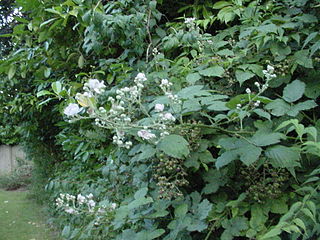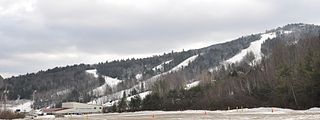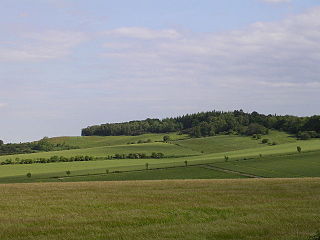Related Research Articles

Waterlooville is a market town in the Borough of Havant in Hampshire, England, approximately 6 miles (9.7 km) north northeast of Portsmouth. It is the largest town in the borough.

A bramble is any rough, tangled, prickly shrub, usually in the genus Rubus, which grows blackberries, raspberries, or dewberries. "Bramble" is also used to describe other prickly shrubs, such as roses. The fruits include blackberries, arctic brambleberries, or raspberries, depending on the species, and are used to make jellies, jams, and preserves.
Red Action was a British leftist political group formed in 1981. It became known for violently confronting groups such as the British National Party on the streets, and for being the main organisational force behind Anti-Fascist Action. In 1995, The Independent estimated that it had between 20 and 30 branches with 10–15 activists in each, and the paper stated that the group "enthusiastically espouses the use of violence"; it also set out links between Red Action and the Irish republican movement, and stated that members operated primarily in large cities such as London, Manchester, Leeds and Glasgow.

Crotched Mountain is a small mountain in western Hillsborough County, New Hampshire, in the United States. The 2,063-foot (629 m) summit of the mountain is in the town of Francestown, while the western slopes of the mountain rise in the town of Bennington, and a long southern ridge of the mountain is in Greenfield. The mountain was named for its appearance. Early settlers thought its V-shaped peaks resembled the fork or "crotch" of a tree.

Peace camps are a form of physical protest camp that is focused on anti-war and anti-nuclear activity. They are set up outside military bases by members of the peace movement who oppose either the existence of the military bases themselves, the armaments held there, or the politics of those who control the bases. They began in the 1920s and became prominent in 1982 due to the worldwide publicity generated by the Greenham Common Women's Peace Camp. They were particularly a phenomenon of the United Kingdom in the 1980s where they were associated with sentiment against American imperialism but Peace Camps have existed at other times and places since the 1920s.

Hampshire is a county in Southern England with some notable archaeology and many notable historic buildings.

Sail Mohamed Ameriane ben Amerzaine was an Algerian and French anarchist who fought in the Spanish Civil War. The French writer Jacques Prévert dedicated a poem to him.

Bishops Green is a village in the English county of Hampshire, on the border with Berkshire.

River Hamble Country Park is a 144.1-hectare (356-acre) Local Nature Reserve which runs along the west bank of the River Hamble between the villages of Botley and Bursledon in Hampshire. It is owned by Hampshire County Council and managed by Hampshire Countryside Service. It is part of Solent and Southampton Water Ramsar site and Special Protection Area, and of Solent Maritime Special Area of Conservation. Part of it is in Upper Hamble Estuary and Woods, which is a Site of Special Scientific Interest.

Protest camps are physical camps that are set up by activists, to either provide a base for protest, or to delay, obstruct or prevent the focus of their protest by physically blocking it with the camp. Protest camps may also have a symbolic or reproductive component where 'protest campers' try and recreate their desired worlds through the enactment of protest camp infrastructures or through the modes of organising and governance.

Buckland Rings is the site of an Iron Age hill fort in the town of Lymington, Hampshire. Today, the mounds and dykes around the outside which once constituted its defences are still clearly visible, although the outer bank lies under the road on the west side, and on the south-east it is nearly ploughed-out. Excavations of the inner and middle ramparts in 1935 revealed that they were of wall-and-fill construction, retained at the front by upright timber beams and walls of cut and laid turf. The entrance, which lies on the east side, was also excavated revealing a long entrance passage and the postholes for a pair of stout gateposts. The site was bought by Hampshire County Council in 1989 to ensure its preservation, and it is open to the public from the A337 road onto which part of it faces.

Dunwood Camp is the site of an Iron Age hillfort located in Hampshire. It occupies the summit of a sandy hill. It has a single Rampart (fortification) but no definite indication of a ditch and it is possible that this earthwork was never completed.

Hamble Common Camp is the site of an Iron Age promontory hillfort located in Hampshire. The fort is located on Hamble common on a peninsula of land formed between Southampton Water and the River Hamble. The site was later occupied by St Andrews castle, one of the Device Forts built by King Henry VIII.

Knoll Camp, or Damerham Knoll, is the site of an Iron Age univallate hill fort located in Hampshire. The fort comprises a circular earthwork containing about four acres. There is a single ditch with inner rampart and traces of counter scarp bank. The site is a scheduled ancient monument no.118. Grim's Ditch also runs throughout this area. The footpath/bridleway from the nearby long barrows of Grans Barrow and Knap Barrow runs southeast along the ridge through the centre of the hill fort, leaving through the original SE entrance, and you could easily miss the ditch and bank as you cross it. The interior is thickly wooded and brambled.

Toothill Fort, or Toothill Ring, or Toothill camp, is the site of an Iron Age univallate hill fort located in Hampshire. The site occupies an extremely strong position at the north end of a spur. Its defences comprise a single rampart and ditch with traces of a counterscarp bank in places. There is an additional scarp on the north side up to 2.0m in height where the site is weakest. The original entrance is onto the ridge to the south.

True Farm is a historic farm and summer estate in Holderness, New Hampshire. Located off New Hampshire Route 113 on True Farm Road, the farm is based around a c.1820 farmhouse, and was expanded into a summer estate in 1920 by George Saltonstall West. The 100-acre (40 ha) estate includes numerous outbuildings and a lakefront cottage. The farm was listed on the National Register of Historic Places in 2012.

Beede Farm is a historic farm and summer estate at 178 Mill Bridge Road in Sandwich, New Hampshire. The property includes a c. 1830s farmhouse that was erected by John Beede, whose uncle, Daniel Beede, was responsible for platting out much of Sandwich. The 303-acre (123 ha) includes a family cemetery. It was transformed into a summer estate in 1938. The farm was listed on the National Register of Historic Places in 2012.

Camp Mowglis is a nonprofit residential camp founded in 1903, and is one of the oldest summer camps in the United States. It is located in East Hebron, New Hampshire, on the shores of Newfound Lake and owned by the non-profit Holt Elwell Memorial Foundation. Mowglis was created with encouragement from author Rudyard Kipling and incorporates themes from his Jungle Books. The camp grounds were listed on the National Register of Historic Places in 2019.

libcom.org is an online platform featuring a variety of libertarian communist essays, blog posts, and archives, primarily in English. It was founded in 2005 by editors in the United States and the United Kingdom. Libcom.org also has a forum and social media features including the ability to comment on post and upload original articles. In contrast with traditional archives, anarchistic archival practices embrace "use as preservation", making use of digital technology to host niche political material in online repositories like Libcom.org.

Magdalen Hill Down is a chalk downland hill, situated 1.5 miles (2.4 km) to the east of the centre of the city of Winchester in the English county of Hampshire. It is crossed by the B3404 road, the old main road from Winchester to London via New Alresford and Guildford. Most of the land to the south of the road is now a reserve run by the Butterfly Conservation, but part of it is used by the Magdalen Hill Cemetery, Winchester's principal cemetery. The land to the north of the road is largely farmed, but is also home to St Swithun's School and Leigh House Hospital.
References
- ↑ ""Join the banana club": Memories of the Brambles Farm Peace Camp, 1982 | libcom.org". libcom.org. Retrieved 21 April 2022.